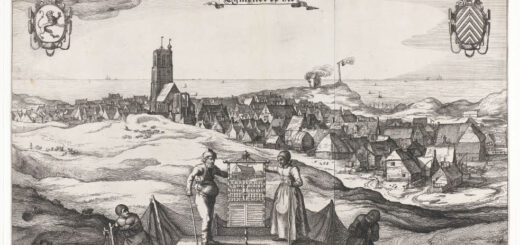Tuesday 18 June 2024 – Nik Ribianszky (Queen’s University Belfast): “The Continuing Development of Generations of Freedom: The Natchez Database of Free People of Color, 1779-1865.”
This seminar is 5:30 pm – 6:30 pm BST live on Zoom (link https://zoom.us/j/5959205456), and later posted to our YouTube channel.
This year the IHR Digital History seminar is support by the Programming Historian: a publisher of open-access, multi-lingual, and peer-reviewed tutorials that help historian learn digital tools, techniques, and workflows.
Session chair: Alexandra Ortolja-Baird
Abstract:
The Natchez Database of Free People of Color (NDFPC) is part of a larger project with its origins going back to 1994. It is a long-running history of an enduring fascination with a group of people who have been described by historians as living “ambiguous lives,” “in the margins,” or “in shadow” and whose freedom was often illusory prior to the Civil War: free Black people. The dataset grew out of a focus on an even more understudied population, free property-owning women of color to then, the entire free Black community. The NDFPC contains data about this population during the Spanish era (1779-1795) and after the US acquired it in 1796 until 1865. It records the name of every free black individual who surfaced in the record, and diligent attention was paid to entering values like gender, age, race, property ownership, occupation, literacy, experiences of violence, among many others (53 in total) into the dataset. The companion to the NDFPC is the Natchez Index of Free Individuals and Families of Color, which is an approximately 500-page Word document that archives transcriptions of records on the 1,018 free Black individuals who lived or stayed in Natchez during those years. It is organized alphabetically by surname when known or by first name. Both are housed on Ribianszky’s website, https://generationsoffreedom.com.
This talk will touch on the continuing expansion and fine-tuning of the NDFPC. It is a reflection of lessons learned along the way and of aspirations to improve and further develop what began as a traditional academic historical inquiry and has become a digital public history project. The presentation will explore better ways to tell stories—the aim of most historians—and to interpret and present critical data on a digital platform.
Bio:
Nik Ribianszky is a Senior Lecturer in History at Queen’s University Belfast. Her areas of specialization are in 18th and 19th century U.S. and African American history, women and gender history, and race relations with particular focus on enslaved and free people of color. Her work has appeared in the Journal of Slavery and Data Preservation, the Journal of Social History, the Journal of Mississippi History, and the African American National Biography. Her book Generations of Freedom: Gender, Movement, and Violence in Natchez, 1779-1865 (UGA Press, March 2021) tells the stories of free Black people who collectively inhabited an uncertain world of qualified freedom in a slave society. She also developed a companion website, https://generationsoffreedom.com/ which houses the Natchez Database of Free People of Color (NDFPC) and the Natchez Index of Free Individuals and Families of Color, case studies on individuals and families, an interactive map feature, and other resources.
Ribianszky partnered with Enslaved: Peoples of the Historical Slave Trade out of Matrix: Center for Digital Humanities & Social Sciences at Michigan State University on a 2021 grant through the National Endowment for the Humanities (NEH). Her data was included on Enslaved.org’s website along with her article (2023). She also participated in the Enslaved.org/National Endowment for the Humanities Summer Institute. She is currently working on a collaborative digital humanities project entitled “Africans in Ireland: A database on African-descended migrants and visitors to Ireland, 1600-1865” and is researching Irish-born enslavers in Natchez, Mississippi.
